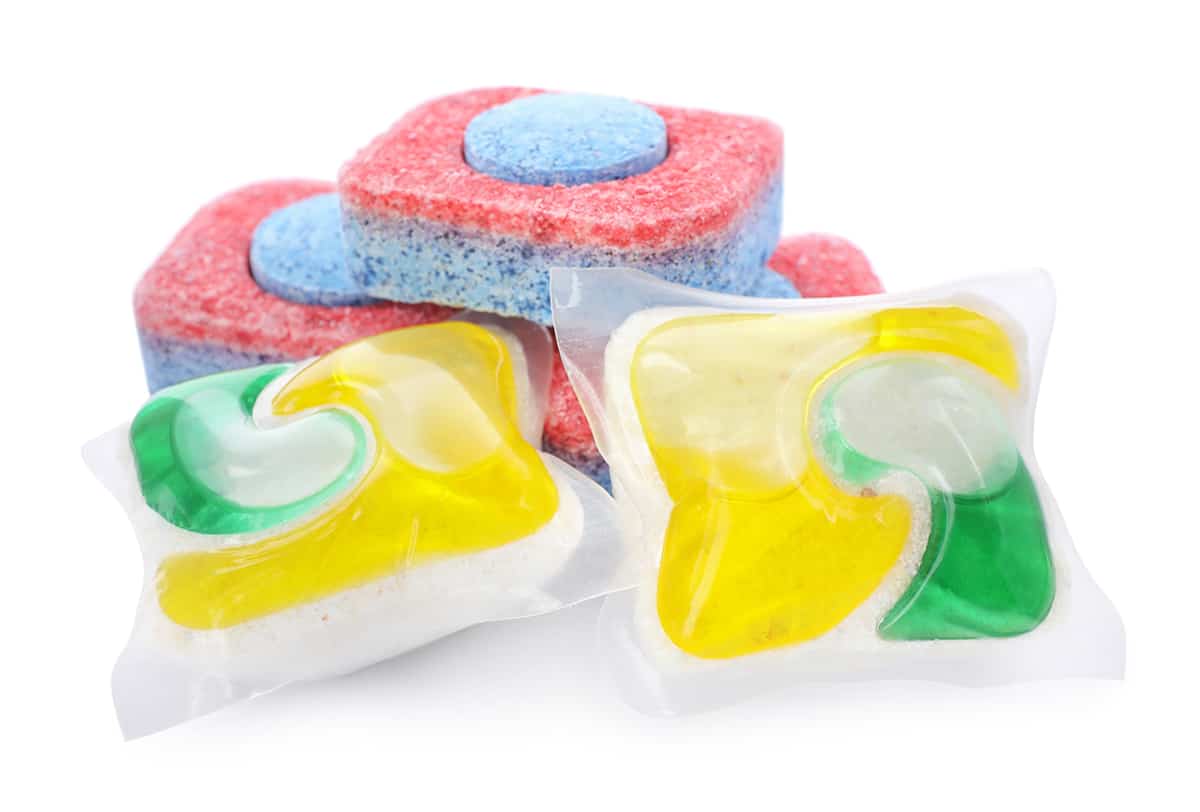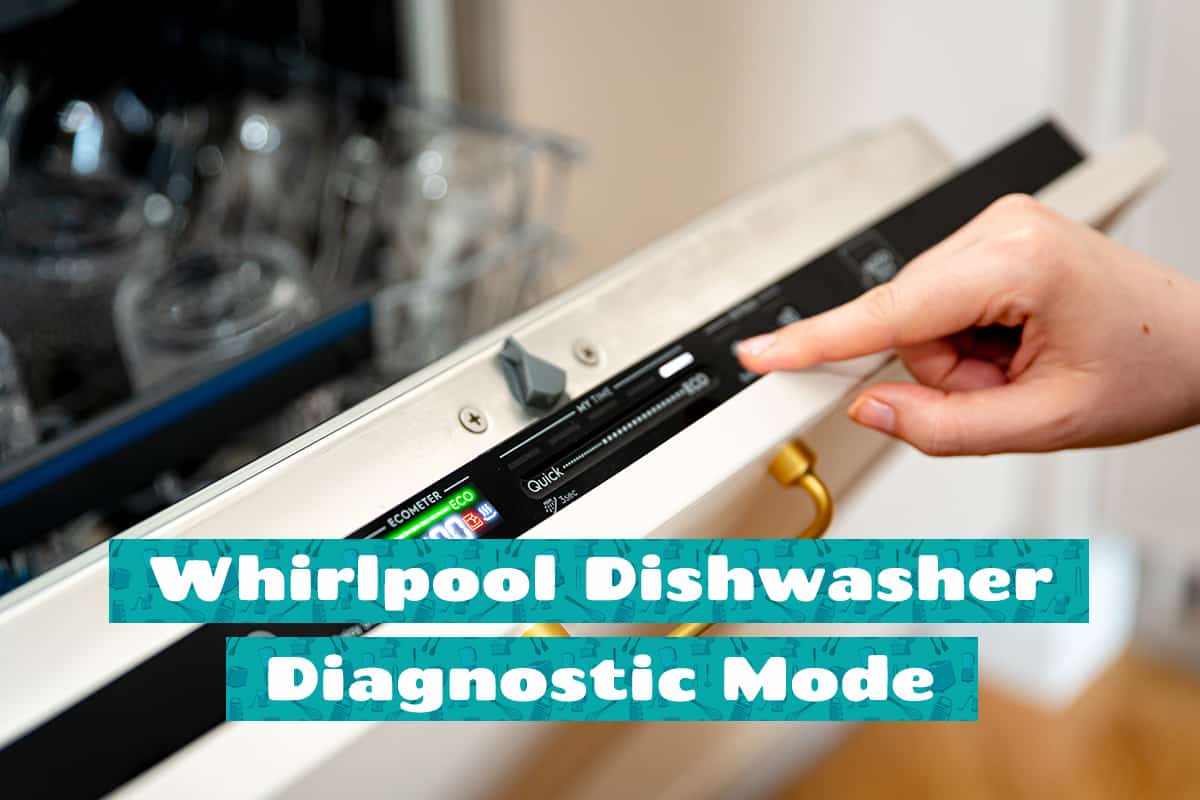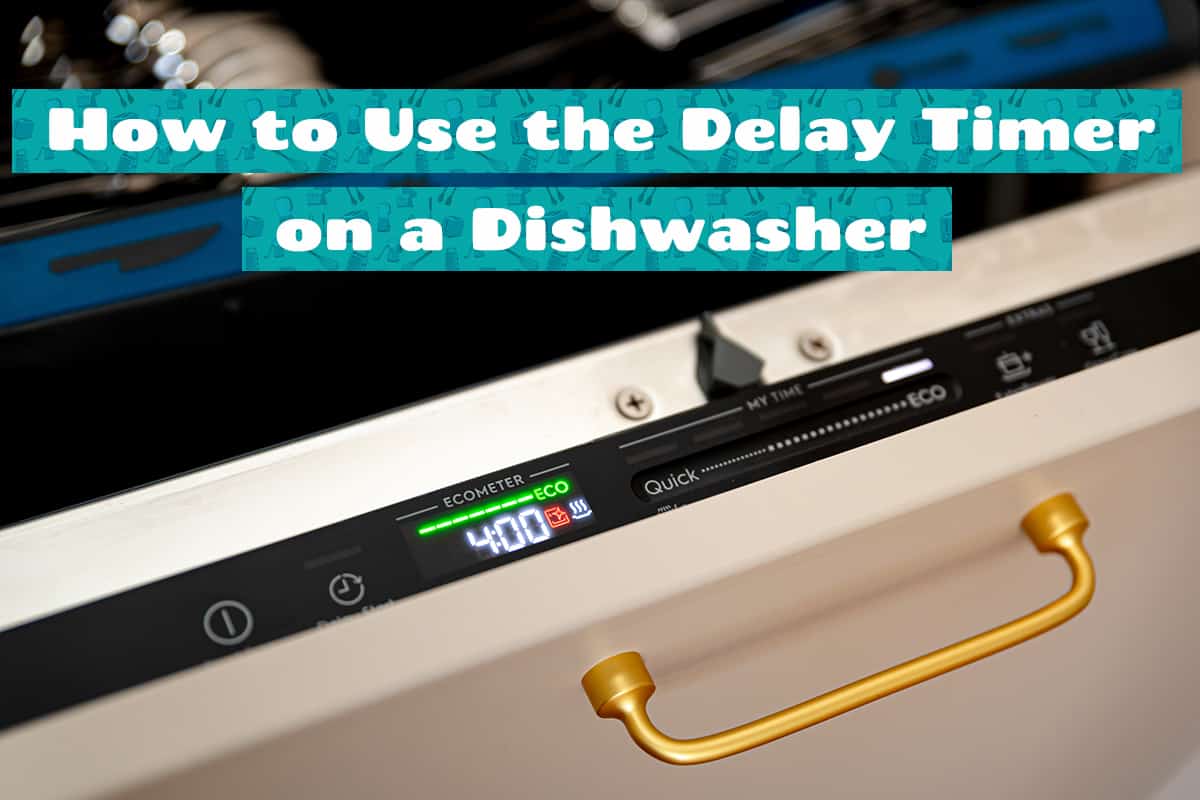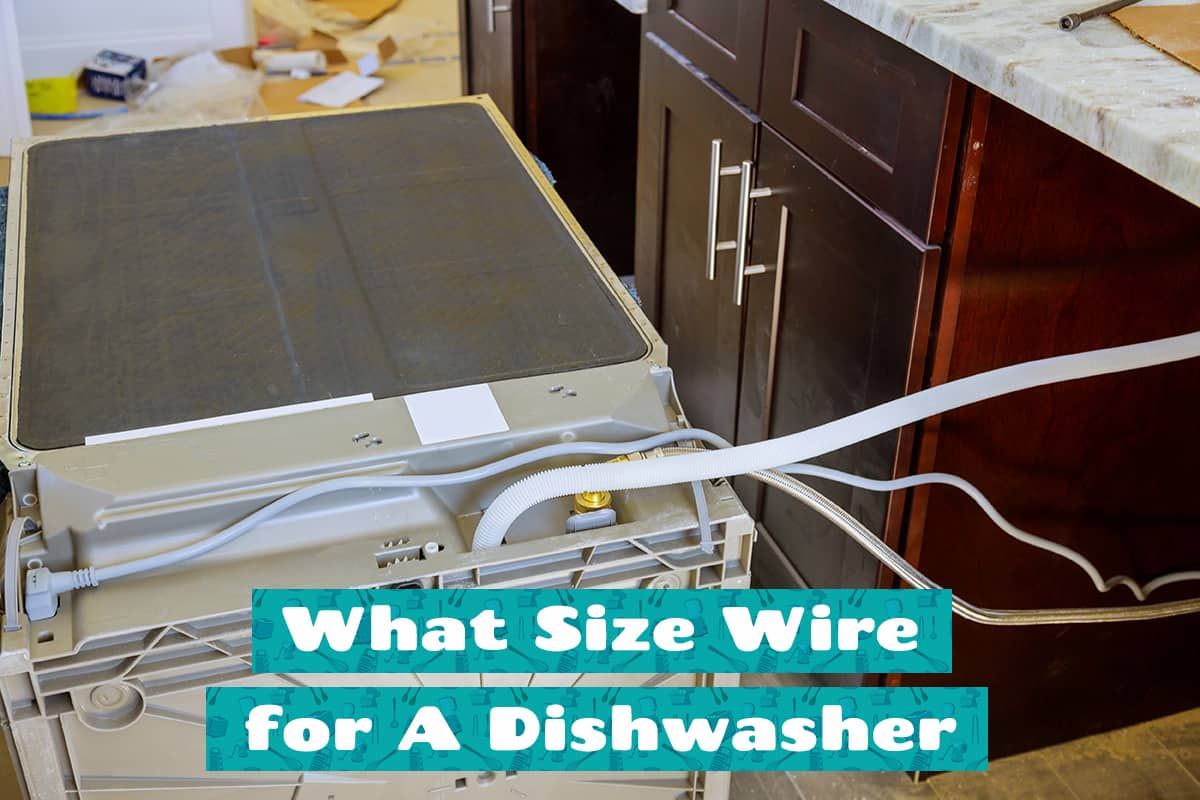Dishwasher pods have made doing the dishes a lot less messy. Instead of pouring liquid or powdered soap into the tiny soap port, all you have to do is pop the pod in the detergent dispenser and it’s ready to roll. However, if you’ve had dishwasher pods or tablets lying around forever, are they still good or are they expired?
Dishwasher pods and tablets can expire. When they do, their plastic coating will deteriorate, exposing their chemicals to oxygen, which will limit their effectiveness. On average, pods and tablets are good for 12 months and 18 months, respectively.
There is a lot more we can learn about dishwasher pods and tablets. Below, we’ll explore how long they last and how to tell when they’ve gone bad, and we’ll learn the differences between pods, tablets, and regular dishwasher detergent.
What Are Dishwasher Pods and Tablets?
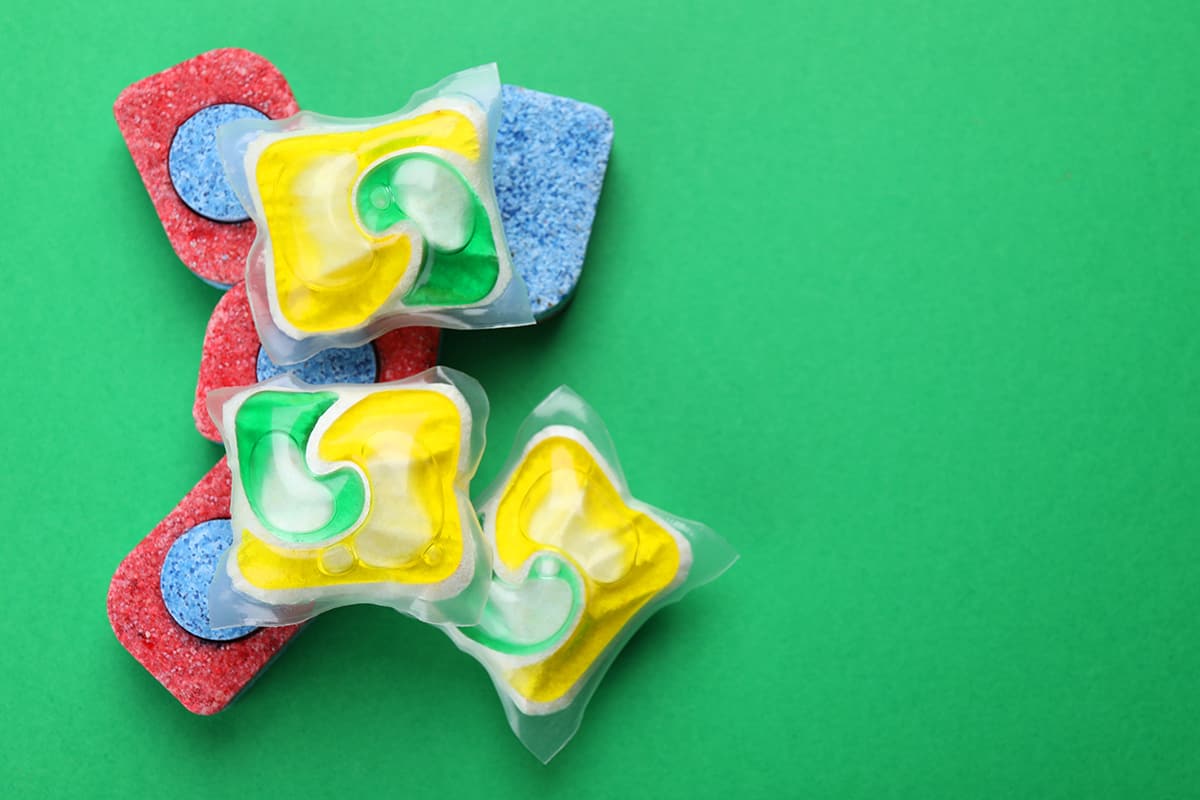
A dishwasher pod is a small, soap-filled plastic sack that fits in the detergent dispenser in modern dishwashers. They work in the exact same way as regular dishwashing soap, but there is virtually no risk of over-soaping your dishes since the pods already contain pre-portioned amounts of detergent.
Dishwasher tablets are similar to pods but do not come in plastic sacks. Instead, they are made up of powder soap and several grease-cutting, rust-eliminating chemicals that are designed to clean your dishes while preventing corrosion from overtaking the internal workings of your dishwasher.
Pods and tablets for dishwashers are readily available online and at supermarkets, just as their liquid and powdered counterparts are. However, they are considerably more expensive than traditional dishwashing soap, but their convenience has made them the go-to option for folks who can’t be bothered to manually measure how much detergent should go into their dishwashers.
How Long Do Dishwasher Pods and Tablets Last?
On average, dishwasher pods will remain good for up to 12 months after purchase, whereas tablets have a shelf life of around 18 months. So, as long as you use your dishwasher regularly, you shouldn’t have any trouble going through the entire box within those timeframes. However, it’s recommended that you use a pod or tablet within five months of purchase.
What usually happens after the fourth or fifth month is that the plastic coating of the pod will begin to deteriorate. When this happens, the liquid detergent inside the pod will leak out and become exposed to oxygen, which can reduce its effectiveness. The longer it’s left out in the open, the less cleaning power it will have.
As for dishwasher tablets, you have to be mindful of what air and moisture can do to the packed powders. In addition to reduced cleaning effectiveness, the powders will begin to separate, leading to a crumbly texture that’s difficult to lift and place in the detergent dispenser of your dishwasher.
Can I Use Old Dishwasher Pods and Tablets?
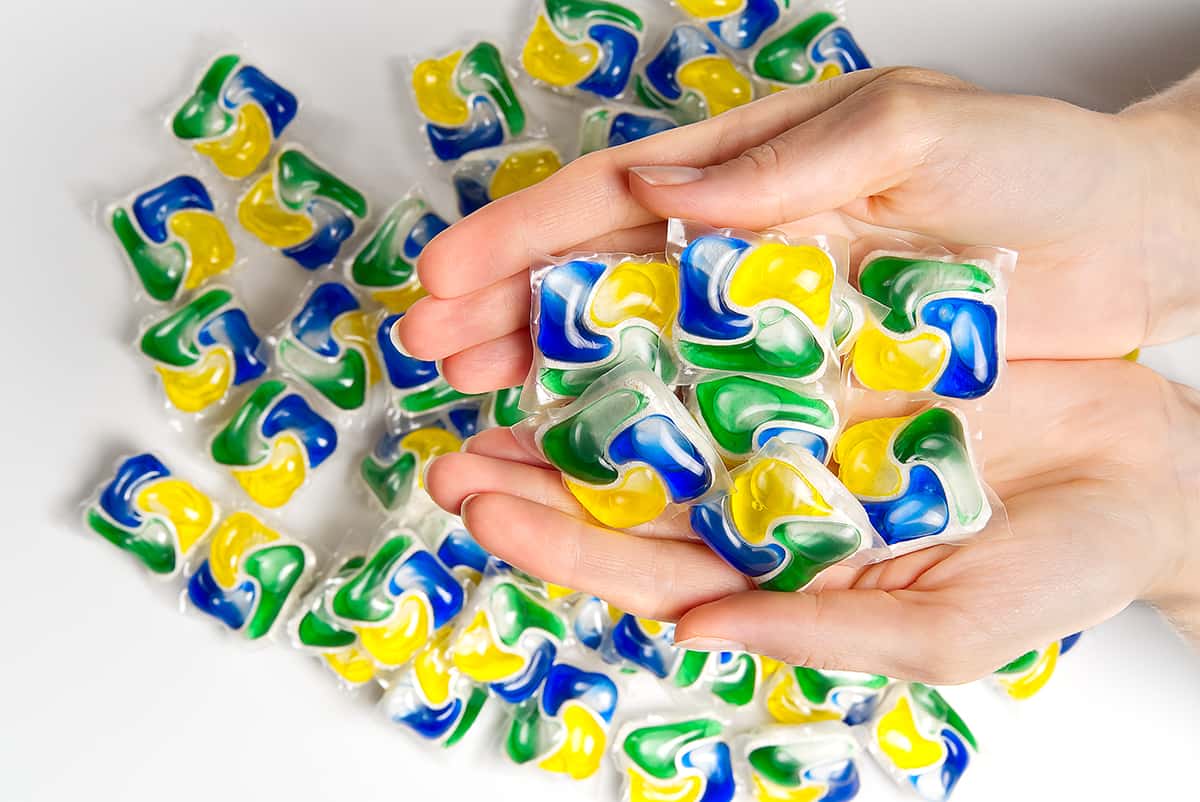
Yes, it’s still possible to gather the liquid of old pods or the powders of crumbled tablets and use them to wash your dishes. The only caveat is that they haven’t clumped up, which makes them harder to dissolve in the dishwasher.
With that said, it’s not exactly recommended. Since the detergent and added chemicals lose some of their potency, you may end up using two or more aged pods and tablets to achieve the same results as a fresh one.
But that’s not the only problem you have to consider. Not only does aged detergent cut through fat much less effectively, but it might also perform poorly at killing germs and bacteria residing on the surface of your dishware.
So, can you use old dishwasher pods and tablets? Yes, you technically can, but I would advise against it.
How to Tell If Dishwasher Pod or Tablet Is Bad?
There are several ways you can tell when a dishwasher pod or tablet is past its prime. Let’s explore these methods down below.
Check the expiration date. Yes, it sounds simple, and that’s because it is. The first thing you should do before popping a pod or tablet in your dishwasher’s detergent dispenser is to search the packaging for an expiration date. If the box says the product has expired, it’s expired, and there’s no point in trying to do the best with what you’ve got.
Yellowing pods. If the plastic coating of a dishwasher pod has gained a yellow tint, it’s time to toss it out or use it immediately. The discoloration of the plastic sack is a clearcut sign that it’s about to give to the detergent at any time.
Crumbly texture. Dishwasher tablets consist of packed powders that dissolve in water. If the powders separate from each other to create a crumbly texture, they have been exposed to too much air. That’s a sign that you need to discard the tablet and pick up a fresh box.
Clumped-up texture. Some dishwasher tablets may clump up over time instead of falling apart. This is another sign that the tablet has lost some, if not most, of its potency. Clumped-up tablets take longer to dissolve in water, so there’s a good chance that the tablet may not clean your dishes as well as you wanted or even leave an invisible residue on the surface of your dishware.
How Do Dishwasher Pods and Tablets Compare to Regular Dishwasher Detergent?
When it comes to “traditional” detergents, you have two options—powders and liquid gels. While it’s true that pods and tablets may contain the regular detergent types we’re used to using, they perform at a much higher, more reliable level.
The fact of the matter is that dishwasher pods and tablets come with concentrated detergents, which is not what you’ll always get from dishwasher detergent from a canister or bottle. In addition, pods and tablets have added ingredients that do more than just cut through grease; they also have pre-treating solutions and rinsing aids to make them even more effective in cleaning dirty dishes.
The only downside of pods and tablets is their cost. On average, you will end up spending less on traditional detergents than you would on pods and tablets. But with a steeper price tag, you’ll also get the convenience of popping a pod or tablet in the detergent dispenser instead of manually measuring your detergents.
